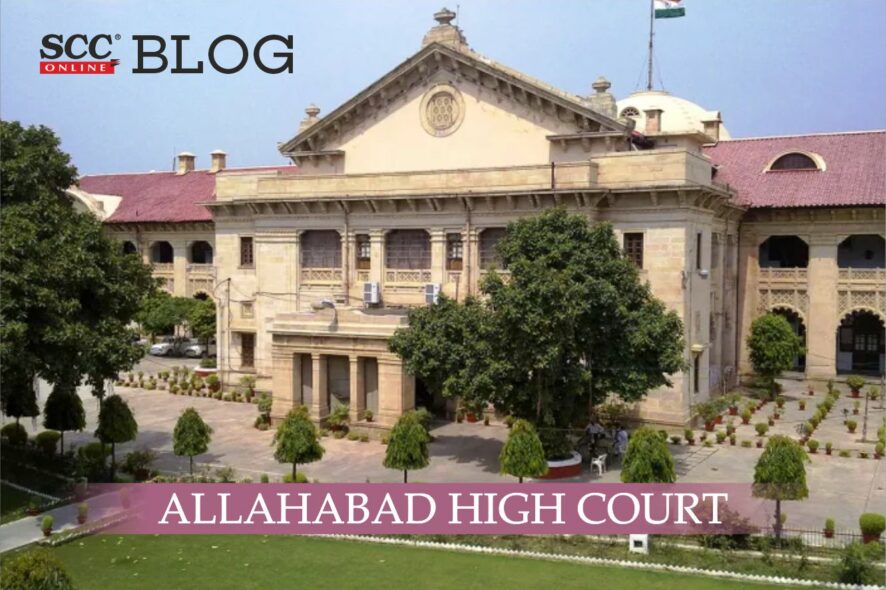Allahabad High Court: In a writ petition filed against the order passed by the Collector under Section 98(1) of U.P. Revenue Code, 2006, praying for a direction to the respondent authorities to grant permission for executing the sale deed in pursuance of an agreement to sell as per terms of Section 98 of the Code, 2006 (‘Code, 2006’) read with Rule 99 of the U.P. Revenue Code Rules, 2016 (‘Rules, 2016’) Yogendra Kumar Srivastava, J. has said that the impugned order were passed in the absence of consideration of the relevant provisions and being based on wholly irrelevant consideration, are held to be legally unsustainable and are set aside. Further, the matter was remitted to the Collector for passing fresh orders based on the provisions contained under Section 98 of the Code, 2006 read with Rule 99(8) of the Rules, 2016.
The Court took note of Section 98 of the Code, 2006 and said that it mandates that no bhumidhar belonging to a scheduled caste shall have the right to transfer, by way of sale, gift, mortgage or lease any land to a person not belonging to a scheduled caste except with the previous permission of the Collector in writing. Thus, the previous permission of the Collector was a condition precedent before any bhumidhar of scheduled caste can seek to transfer his land to a person not belonging to a scheduled caste and in the absence of such permission having been obtained, the transfer would be rendered void as per Section 104 and would be subject to the consequences provided under Section 105.
In the present cases, the respondent authority taking note of the fact that the principal ground for seeking permission was that the land in question was situated very far from the place where the petitioner is residing, said that that this reason would not be a valid ground for grant of permission under Section 98 of the Code, 2006. Further, the petitioner had not produced any certificate from the Gram Pradhan to the effect that no person in the village belonging to SC/ST was ready to purchase the property in question.
The Court said that the above said requirement of submission of a certificate from the Gram Pradhan is not one of the conditions specified under Section 98 of the Code, 2006 read with sub rule (8) of Rules 99 of the Rules, 2016, and therefore, the same cannot be said to be a condition precedent for the purpose of grant of permission under Section 98 of the Code, 2006. Further, as per the statutory scheme laid down under Section 98(1) of the Code, 2006 read with Rule 99 of the Rules, the Collector may grant permission for transfer by bhumidhars belonging to SC upon fulfilment of either of the five specified conditions:
-
In the absence of a surviving heir.
-
The transferor has settled or is ordinarily residing in a different district or State.
-
The tenure holder or any member of his family is suffering from any fatal disease.
-
The applicant is seeking permission for transfer to purchase any other land from the consideration of such proposed transfer.
-
The area of the land held by the applicant on the date of application does not, after such transfer, reduces to less than 1.26 hectares.
The Court reiterated Sitaram v. State of U.P., 2022 SCC OnLine All 200, wherein it was held that, in exercise of its discretionary power, if the authority ignores or does not take into account considerations which are relevant to the purpose of the statute in question, then its action would be invalid. Thus, a decision by an authority exercising discretionary power under a statute must be arrived at by taking into account the relevant considerations and eschewing the irrelevant considerations, in the absence of which the action would have to be held as ultra vires and void.
The Court held that the conditions which are required to be satisfied while considering grant of permission by the Collector to a scheduled caste bhumidhar, seeking to transfer his land are clearly specified under the proviso to Section 98(1) Code, 2006 read with Rule 99(8) Rules, 2016. Thus, any other reference made in the impugned order to reject the application of the petitioner, would render the exercise of discretionary power as ultra vires and invalid.
[Omwati v. District Collector, Pilibhit, 2022 SCC OnLine All 764, decided on 10-11-2022]
Advocates who appeared in this case :
Siddharth Nandan, Advocate, Counsel for Petitioner;
Chief State Counsel, Counsel for Respondent.
*Apoorva Goel, Editorial Assistant has reported this brief.






